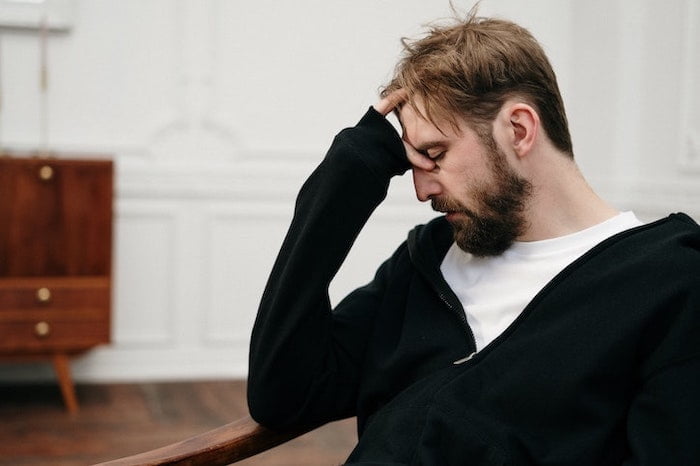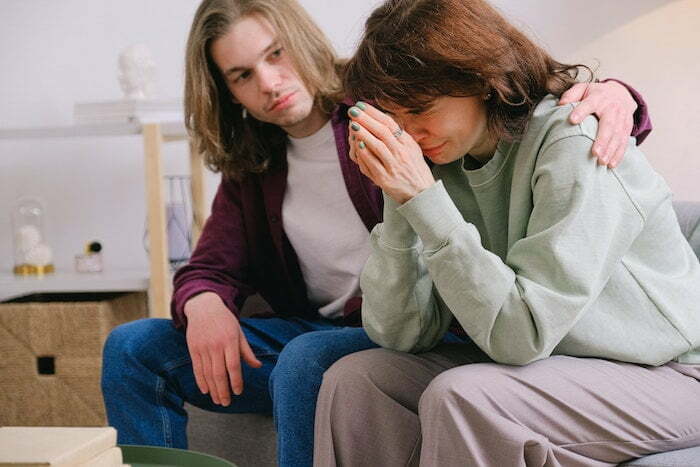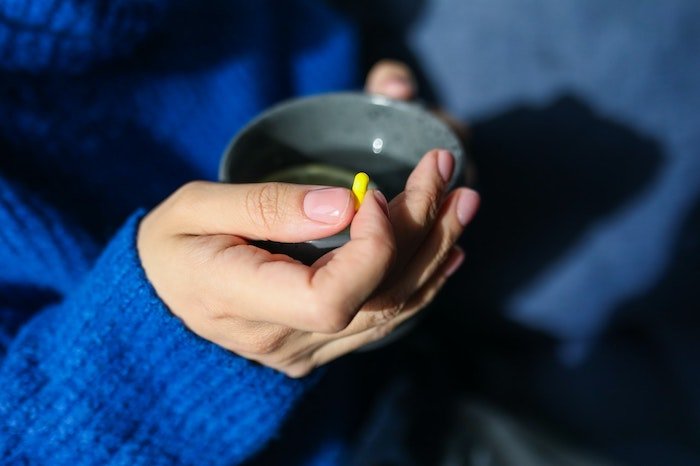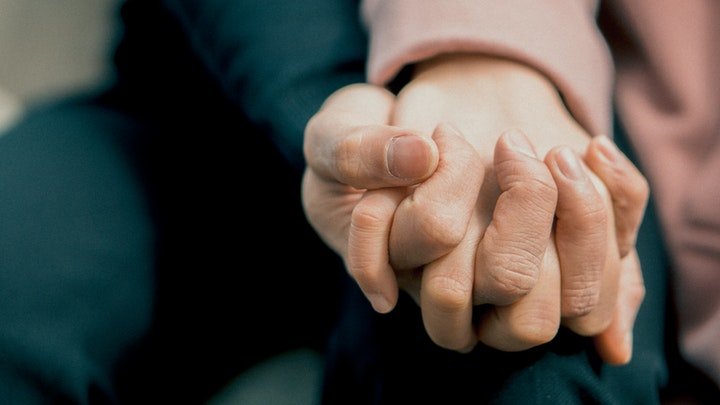Quick links for drug and alcohol rehab in High Wycombe
- The FAST Alcohol Screening Test for Drug and Alcohol Rehab in High Wycombe
- The Route to Drug and Alcohol Rehab: Intervention in High Wycombe
- Drug and Alcohol Rehab: NHS Referrals, Insurance and In/outpatient Treatment in High Wycombe
- How Much Does Alcohol and Drug Rehab in High Wycombe Cost?
- Detox, Withdrawal Symptoms, and Medication at Drug and Alcohol Rehab in High Wycombe
- Types of Therapies Offer at Drug and Alcohol Rehab in High Wycombe
- Aftercare After Drug and Alcohol Rehab in High Wycombe
- Is Drug and Alcohol Rehab in High Wycombe For Me?
- Alternatives to Drug and Alcohol Rehab in High Wycombe
- Getting Help from a Drug and Alcohol Rehab in High Wycombe Through Rehab Recovery
Sitting in the valley of the river Wye in the county of Buckinghamshire is the market town of High Wycombe.
High Wycombe is an area of Outstanding Natural Beauty and attracts many people to its beautiful walks and scenery. However, the beauty and history aside, this town also suffers from drug and alcohol addiction issues.
There is no specific data available on addiction statistics in High Wycombe, but there are statistics for Buckinghamshire. Around 20% of the people residing in Buckinghamshire are binge drinkers, which is around 106,700 people.
Around one in every five adults in Buckinghamshire consume alcohol and are classed as high-risk drinkers. This leaves more than one in four with an alcohol dependency, possibly leading to addiction. [1]
Around 25,000 adults consume more than 50 units of alcohol per week, while the recommended limit stands at 14 units a week for both men and women.
One unit of alcohol is 10ml or eight grams of pure alcohol; for example, this is one-third of a pint of regular beer. Drinking at this level should be spread out over numerous days, and you should have several days without it.
Addiction is an extremely serious issue in High Wycombe and Buckinghamshire, one that recent studies have shown to be in need of attention.
| Addiction and Rehab in High Wycombe and Buckinghamshire | Statistics in Buckinghamshire |
|---|---|
| Estimated Users of Opiates and Crack Cocaine in High Wycombe and Buckinghamshire | 1,482 adults (4.5 per 1,000 population) |
| Percentage of Estimated Users Not Receiving Specialist Treatment in High Wycombe and Buckinghamshire (2020/21) | 55% (in line with national figure of 53%) |
| Rate of Opiate and Crack Cocaine Use in Younger Adults (25-34) vs. Older Adults (35-64) in High Wycombe and Buckinghamshire (2016/17) | 2.0 times as high in younger adults |
| Prevalence of Binge Alcohol Drinking in High Wycombe and Buckinghamshire vs. Nationally | 16.4% in Buckinghamshire vs. 15.4% nationally |
| Estimated Adults Dependent on Alcohol in High Wycombe and Buckinghamshire (2018) | 3,617 adults (8.7 per 1,000) |
| Percentage of Estimated Dependent Alcohol Drinkers Not Receiving Rehab Treatment in Buckinghamshire (2020/21) | 81% (in line with national figure of 82%) |
The cost of addiction treatment on the NHS is massive; each year, over £21 billion is spent on alcohol-related harm. This includes £11 billion spent on alcohol-related crime and £7 billion in lost productivity. [2]
The number of adults consuming alcohol at high-risk levels stands at around 96,913 adults. This is made up of:
- A total of 27,421 higher risk drinkers: this is more than 35 units for women and 50 units for men every week.
- As well as 69,492 increasing risk drinkers: this is around 14–35 units a week for women and between 21–50 units for men every week. [3]
In Buckinghamshire, there are more than 260,000 low-risk drinkers, making up 62% of the population. This means that 60% of the population drinks less than 14 (women) and 21 (men) units a week.
Fourteen per cent of the population abstains from alcohol, which is around 59,600 people. Note that these are estimations.
This level of harmful drinking has led to alcohol-related deaths and specific diseases such as chronic liver disease. Here are the general rates from 2012 to 2014: [4]
- Alcohol-specific mortality rate: In Buckinghamshire, the mortality rate for males was 10.0 (74) and 4.9 (38) for women. The total rate for Buckinghamshire stood at 7.4, compared to 9.7 in the South East and 11.6 across England.
- Alcohol-related mortality rate: In Buckinghamshire, 48.0 (104) males and 24.1 (67) females suffered from alcohol-related mortality. The total number for Buckinghamshire was 34.7, 40.8 for the South East rate, and 45.5 for the overall England rate.
- Chronic liver disease: affected more than 9.6 (67) males and 5.2 (41) females in Buckinghamshire. The total rate of chronic liver disease in Buckinghamshire was 7.3, out of a 9.7 rate for the South East and 11.5 for the whole of England.
This rate of alcohol misuse has led to a rise in alcohol-related crime. The rate from 2012 to 2013 for Buckinghamshire was around 4.07 per 100,000 people. Nationally the rate stood at 5.74 per 100,000 people.
Most crimes committed were violent and sexual offences, accounting for over 2000 crimes in 2014:
- Alcohol-related recorded crime: 2,053
- Alcohol-related sexual crimes: 57
- Alcohol-related violent crimes: 1,336
In the whole of the UK, alcohol is heavily associated with over 50% of violent crimes and more than 35% of domestic violence issues.
It has been noted that the number of adults that abstain from alcohol has increased from 19% to 21% in recent years. However, it has been recognised that many people underestimate the amount of alcohol and units they consume.
This being said, many researchers are led to believe that these statistics do not show the real problem, with a larger amount of alcohol abusers being expected.
For help accessing drug and alcohol rehab in High Wycombe, call us today on 0800 326 5559
Substance Abuse in High Wycombe

Two people talking together at a drug and alcohol rehab in High Wycombe
In case reviews regarding children, drug and alcohol abuse is referred to in over 57% of cases. This is where a child has died or been injured or neglected due to parental behavioural issues.
According to recent data and research, it’s estimated that around 25,000 people in Buckinghamshire use illegal drugs:
- One thousand two hundred forty-eight men and women have an opiate dependency between the ages of 15 to 64. This is around 3.8 people per 1,000 of the population.
- Cannabis, cocaine and opiates are the most popular drugs used amongst Buckinghamshire’s adolescent and adult population.
In the last year, Buckinghamshire saw the largest record number of drug-related deaths. The national statistics office found 34 drug-related deaths in 2020 in Buckinghamshire, which was an increase from the year before and the highest since 1993.
These deaths include:
- Poisoning from illegal drugs
- Poisoning from prescription drugs
- Accidents and suicides
- Health complications from previous use
In 2020 across both England and Wales, over 4,500 deaths were recorded related to poisoning from drugs. The majority of this number was due to misuse of substances. This number was the eighth year that records climbing numbers.
Further, the drug-related deaths in deprived areas were five times higher than in other areas of Buckinghamshire, showing the massive requirement for intervention.
Get the support you need to overcome addiction at a drug and alcohol rehab in High Wycombe by calling us today on 0800 326 5559
How Do I Know If I’m Addicted?

Man holding his head at a drug and alcohol rehab clinic in High Wycombe
Knowing whether you are addicted is the first step to reducing the negative habits in your life. The CAGE questionnaire is an alcohol abuse screening tool comprising four main questions that can be altered to relate to drugs too. [5]
It is important to understand that only a professional can diagnose you with an addiction, but if you are looking for an indicator before you look for support in the High Wycombe area.
The CAGE Questionaire:
- Have you ever felt you should cut down on your drinking?
- Have people annoyed you by criticising your drinking?
- Have you ever felt bad or guilty about your drinking?
- Have you ever had a drink first thing in the morning to steady your nerves or to get rid of a hangover (eye-opener)?
The CAGE questionnaire that is adapted to include drugs is called the CAGE-AID:
- Have you ever felt you ought to cut down on your drinking or drug use?
- Have people annoyed you by criticising your drinking or drug use?
- Have you felt bad or guilty about your drinking or drug use?
- Have you ever had a drink or used drugs first thing in the morning to steady your nerves or to get rid of a hangover (eye-opener)?
The scoring of such questionnaires is done on a yes or no basis, a no is zero, and a yes is one. Higher scores indicate alcohol or drug problems, and a score over two is said to be clinically significant.
Further, there is an alcohol dependency tool called the Severity of Alcohol Dependence Questionnaire (SADQ): [6]
- A score of 4–19 indicates mild dependency
- a score of 20–34 indicates moderate dependency
- a score of 35–60 severe dependency.
In Buckinghamshire, there are over 24,000 people with an alcohol dependency:
- 22,500 have a mild dependency
- 1,700 have a moderate dependency
- Around 400 have a severe alcohol dependency
Please call our 24-Hour Helpline: 0800 326 5559
The FAST Alcohol Screening Test for drug and alcohol rehab in High Wycombe

Therapist taking notes at a drug and alcohol rehab centre in High Wycombe
FAST is an alcohol screening test and assessment tool, including a subset of questions from the alcohol use disorders identification test (AUDIT). [7]
FAST Questions:
- How often have you had six or more units if you are female or eight or more units if you are male on a single occasion in the last year?
- How often have you failed to do what was normally expected from you during the last year because of your drinking?
- How often during the last year have you been unable to remember what happened the night before because you had been drinking?
- Has a relative, friend, doctor or other health worker been concerned about your drinking or suggested that you cut it down?
A score of over three indicates that you are what is called a ‘fast positive’. If you are fast positive, then you should complete the remaining AUDIT questions. The whole test involves the questions listed above and six more questions.
Scoring:
- 0 to 7 indicates low risk
- 8 to 15 indicates an increasing risk
- 16 to 19 indicates a higher risk
- 20 or more indicates a dependence
It is important to remember that these are just indicators, and only a trained professional can diagnose you with addiction. However, if you are looking to find support in High Wycombe, these questionnaires can be useful.
Please call our 24-Hour Helpline: 0800 326 5559
The Route to Drug and Alcohol Rehab: Intervention in High Wycombe

People comforting each other at a drug and alcohol rehab in High Wycombe
The definition of intervention is changing the direction of something and altering its path towards a different end.
Regarding alcohol and drugs, intervention is a way to prevent full addiction and its negative consequences of it and to get the user into rehabilitation and therapy.
Types of intervention:
- Simple intervention: It is more of a one-on-one situation rather than a large confrontation. This can be carried out by a loved one or professional.
- Classic intervention: Everyone except the addict is present. This is called a Johnson model intervention. This is education for the participants, explaining how they all play a role and how to execute this when the mediation comes.
- Family system intervention: these ‘family frameworks’ methods aid the family bonds. This guided training helps the user and their family mend their bonds broken by substance abuse and see how they can work together as a team.
- Crisis intervention: when the user becomes a danger to themselves or others, the situation becomes serious, and we must optimise safety. This impromptu intervention must be immediate to get the user’s help as soon as possible.
If you are looking to organise an intervention in the High Wycombe area for a loved one or a friend, give our team at OK Rehab a call, and we can help you with all the necessary steps and training.
Please call our 24-Hour Helpline: 0800 326 5559
The CRAFT Approach to Intervention

Couple walking together through a field during outdoor therapy at a drug and alcohol rehab in High Wycombe
The CRAFT approach stands for community reinforcement and family training.
This is not like standard intervention but a reward and motivation-centred approach that is used by intervention specialists in High Wycombe and around the country.
Encouraging positive changes and building family bonds reinforces this programme, where families are told not to reward anti-social and pro-using behaviour. This allows negative consequences to happen, but when the user is social and anti-use, the family rewards them. This rewires the brain and offers to opportunity for the user to make a dramatic change. [8]
With mental health and well-being in mind, the CRAFT approach believes that bonds and family are the most likely to make users change their negative patterns and habits, increasing the likelihood of a real change.
Researchers have found that interventions like CRAFT increase the rate of engagement of addicts in treatment.[9]
CRAFT was founded by Meyers and Miller in the 1970s as an altered version of the CRAFT (the community reinforcement approach). CRAFT is 74% effective with regard to getting loved ones into treatment.
CRAFT teaches the members of the family how to:
- Be able to identify the user’s triggers and consequences of use
- Break the negative patterns and implement a rewards system
- Communicate with the family effectively and express emotions, needs and wants
- Aid information and access to treatment resources when the loved member expresses interest or asks for help
- Learn to re-connect and understand other people’s values
- Let negative consequences play out
- Reward pro-social and anti-using behaviour
Once rehab has been established as the primary goal, it is critical to know the details of rehabilitation in case the user requires access or information.
Our team at OK Rehab will be able to tailor your rehab programme to fit your exact requirements so your stay at rehab in High Wycombe will be as comfortable as possible.
Please call our 24-Hour Helpline: 0800 326 5559
Drug and Alcohol Rehab: NHS Referrals, Insurance and In/outpatient Treatment in High Wycombe

Man talking on a phone at a drug and alcohol rehab clinic in High Wycombe
There are two main types of rehabilitation centres, outpatient and inpatient, the difference being whether you live in the residency or live at home.
The most common referrals from the NHS are outpatient centres; you will attend regular therapies and groups to help you with addiction whilst you remain living at home. [10]
Inpatient rehabilitation centres in Buckinghamshire and High Wycombe are most likely the ones you see on social media. They tend to be more expensive and therefore not given out regularly by the NHS.
As you live in the centre, the cost covers everything from food to medication. Both inpatient and outpatient help tend to have the same success rates, but it depends on how fast you need help and the intensity of addiction.
Please call our 24-Hour Helpline: 0800 326 5559
How Much Does Alcohol and Drug Rehab in High Wycombe Cost?

Pile of money
The cost of inpatient centres can range from £75,000 per month to £14,000 for a 28-day stay at a standard facility.
Despite how expensive these inpatient centres are, there is a rehab for every budget. They have a varied price range to suit your needs and can have flexible payment plans.
If required, you will receive treatment and medication, which will have to be paid for by outpatients (around £9 per prescription).
If you are looking for the cheapest option for residential rehab available, it is worth looking in places besides High Wycombe as price varies from place to place.
Please call our 24-Hour Helpline: 0800 326 5559
Detox, Withdrawal Symptoms, and Medication at Drug and Alcohol Rehab in High Wycombe

Patient taking medication at a drug and alcohol rehab centre in High Wycombe
The genesis of most rehabilitation treatments requires a detox. For example, addiction related to heroin and alcohol requires detox first, unlike cocaine and cannabis, as they are not physically addictive.
For alcohol and heroin, the first waves of withdrawal can be dangerous and extremely uncomfortable. This can be assisted using Librium, a medical intervention.
Withdrawal commonly consists of sickness, nausea, headaches, aches and pains, and difficulty sleeping. This is added to by psychological symptoms such as chronic depression and anxiety.
Librium is a benzodiazepine primarily used for anxiety experienced at the beginning of the detox. This helps regulate the damaged communication between transmitters in the brain by the use of drugs, regulating nervous activity and reducing anxiety.
Librium is taken over ten days, as it can become addictive. It is taken under the watchful eye of outpatient or inpatient staff in rehab facilities in High Wycombe.
Librium aids the rebalancing of the damages and changes your brain chemistry. The dose is smaller as the days go by, but you will be on a higher dose if your withdrawal symptoms are worse than normal. [11]
This type of pharmacological intervention can also reduce the risk of seizures and should be followed by weeks of emotional therapy. This is in order to challenge the causes and risks of the user’s previous addiction.
The process of challenging addiction and its roots can be challenging, but if you do admit yourself to residential rehab in High Wycombe.
Please call our 24-Hour Helpline: 0800 326 5559
Types of Therapies Offer at Drug and Alcohol Rehab in High Wycombe

Therapist looking directly at the camera at a drug and alcohol rehab clinic in High Wycombe
Cognitive Behavioural Therapy(CBT)
CBT is a talking therapy primarily used to tackle a variety of mental health issues such as anxiety, depression and bipolar disorder.
CBT breaks up these mental challenges into manageable-sized chunks in order to make them easier to analyse and work on.
Cognitive Behavioural Therapy focuses on behavioural patterns, aiming its work on the negative thoughts and feelings that come with negative thoughts. If you do admit yourself to a rehab centre in High Wycombe, you will likely come across CBT.
Dialectical Behavioural Therapy (DBT)
DBT is a form of CBT focused on self-harming and negative behaviours directed towards yourself. This type of therapy is really useful to people who struggle with really intense emotions.[12]
Not everyone will require DBT. When you enter a rehab centre in High Wycombe, you will be assessed by our friendly team to see which particular therapies will be best suited to you.
Motivational Interviewing (MI)
Another form of therapy is Motivational Interviewing (MI), which refers to the conversation and behavioural change. MI is founded on empirical evidence and the type of motivation language that explores the reasons for using and moving towards change.
This is primarily grounded on acceptance of oneself as a previous user and others and loved ones around you. [13]
Often, the therapist will listen and direct the guiding style of communication. This is designed to empower the individual (previous user) and aid their attitude towards rehabilitation and therapies.
This forces a change with compassion, using open and not closed questions.
MI also reinforces any positive affirmations in order to reflect on past behaviours and thoughts, aiming to drive the patient forward in terms of steps and goals.
Therapy and rehabilitation treatments in rehab require commitment and strength. However, if you do decide to admit yourself into a rehab facility in High Wycombe, motivational interviewing will help you keep you on track to recovery.
Holistic Therapies (HT)
Yet another form of the family of treatments is Holistic therapies: there are a plethora of holistic therapies available at rehabs in High Wycombe, such as:
- Reflexology
- Message therapy
- Acupuncture
- Equine therapy
- Art therapy
- Music therapy
Holistic therapy aims to rebalance the mind, body and soul; ‘Holistic’ in Greek means’ whole’, the origin of the word ‘holistic’. Those who work in holistic therapy believe that issues arise from being disconnected from one of these three parts mentioned.
This means looking at yourself as a whole and not in individual parts of symptoms. We are to live a happy and whole life, meaning we are one, as a whole.
If you are interested in receiving holistic therapies like equine therapy in the High Wycombe area, we recommend that you get in contact with the team at OK Rehab.
As it may be the case that you will need to travel to find a centre which has the facilities for equine therapy.
Please call our 24-Hour Helpline: 0800 326 5559
Aftercare After Drug and Alcohol Rehab in High Wycombe

Group therapy session in progress at a drug and alcohol rehab centre in High Wycombe
Aftercare is vital to prevent a relapse in drug use or alcohol dependency once you have left rehab in High Wycombe.
For example, Alcoholics Anonymous, Narcotics Anonymous, Cocaine Anonymous and SMART Recovery are some of the most popular groups to follow up on your individual therapy and treatment.
You are all there as strangers, but with one very difficult problem in common. This is where you will find support and learn that you all have parallel struggles and fears.
This connection with others is something which will be invaluable to your recovery journey in High Wycombe.
Please call our 24-Hour Helpline: 0800 326 5559
The 12-Step Programme in High Wycombe

Woman drinking tea and looking outside at a drug and alcohol rehab centre in High Wycombe
The 12-step programme was created when the group originally started, reciting the goals of the earliest members: [14]
- We admitted we were powerless over alcohol – that our lives had become unmanageable.
- Came to believe that a Power greater than ourselves could restore us to sanity.
- Made a decision to turn our will and our lives over to the care of God as we understood Him.
- Made a searching and fearless moral inventory of ourselves.
- Admitted to God, to ourselves and to another human being the exact nature of our wrongs.
- We were entirely ready to have God remove all these defects of character.
- Humbly asked Him to remove our shortcomings.
- Made a list of all persons we had harmed and became willing to make amends to them all.
- Made direct amends to such people wherever possible, except when to do so would injure them or others.
- Continued to take personal inventory and, when we were wrong, promptly admitted it.
- Sought through prayer and meditation to improve our conscious contact with God as we understood Him, praying only for knowledge of His will for us and the power to carry that out.
- Having had a spiritual awakening as the result of these steps, we tried to carry this message to alcoholics and practice these principles in all our affairs.
Please call our 24-Hour Helpline: 0800 326 5559
What is SMART Recovery Like in High Wycombe?

Two people holding hands at a drug and alcohol rehab in High Wycombe
SMART Recovery is another type of aftercare. SMART Recovery has a system of support based on four principles:
- Building and maintaining motivation
- Coping with any urges and recognising how to prevent them
- Managing thoughts and feelings that used to lead to harmful behaviour
- Living a balanced life and regaining health
Therapy and aftercare are vital components of addiction treatment at High Wycombe. Aftercare, in particular, is crucial as it becomes easy to go back to your old lifestyle and habits once you leave rehab.
Our centres provide a variety of aftercare services in High Wycombe.
Please call our 24-Hour Helpline: 0800 326 5559
Is Drug and Alcohol Rehab in High Wycombe For Me?

Person typing on a laptop at a drug and alcohol rehab clinic in High Wycombe
Rehabilitation programmes are designed especially for those who experience addiction. Nowadays, there are private rehab centres covering all manners of mental health and addiction issues in the High Wycombe area and further afield.
Drugs and alcohol are extremely common; however, many people are also seeking rehab in High Wycombe in areas such as gambling, eating disorders, and mental health problems. All of these behaviour addictions can also be treated in rehab in High Wycombe.
Rehabilitation can change a person’s life for the better. It provides a person with the ability to regain control of their choices. There’s no denying that change can be hard, but the long-term consequences of a life in recovery are worth it.
Whatever your age, there are options for you in High Wycombe. For those over eighteen, there tend to be more options, but in many local areas, there is also sometimes local support for younger people too.
More information can be found by contacting the OK Rehab team. There is increasingly more addiction in the over 65 age group. We can also discuss options for people in this age range as well.
Mental health problems are highly correlated with addiction. Many people use drinks or drugs to self-medicate symptoms of poor mental health. On the other hand, drinking and drugs are causing factors of mental health problems.
This is why trained practitioners with mental health experts are essential in rehab clinics. For a person to recover, a holistic approach is essential.
You can definitely find everything you need in terms of holistic therapy in High Wycombe.
Whether you’re a person who is facing drug and alcohol abuse, misuse, addiction, and/or physical dependency, there are treatment options available to you in High Wycombe. Every single person deserves the opportunity for recovery and healing.
It’s vital to bear in mind that for rehab to be successful, a person must be fully committed to doing whatever it takes.
Please call our 24-Hour Helpline: 0800 326 5559
What Happens When You Contact OK Rehab?

Patient talking seriously with a therapist at a drug and alcohol rehab in High Wycombe
In the first instance, we have a conversation.
This is the chance for you to ask questions and for us to hold a free no-obligation pre-assessment and explain the various treatment options in High Wycombe.
The pre-assessment is in confidence. We hold this in order to formulate a picture of who you are and what your lifestyle and addiction are like.
Our friendly and professional team are very open-minded. It’s important that you’re honest and open, as this makes the referral process much easier.
We’ll ask questions related to your lifestyle and your addiction. This is so we can match you to the most suitable treatment option for you in the High Wycombe area. Whatever background you have, there are options.
All you need to do to have OK Rehab lead you through the referral process and match you to the most relevant rehabilitation programme is give us a call on 0800 326 5559.
Here at OK Rehab, we can help you find the right support for you in High Wycombe or in any other part of the country.
Alternatives to Drug and Alcohol Rehab in High Wycombe

People talking together at a drug and alcohol rehab clinic in High Wycombe
There are several free and low-cost drug and alcohol rehab services in High Wycombe, some of which include:
1. High Wycombe CAMHS
Address: Sue Nicholls Centre, Bierton Road, Aylesbury, Buckinghamshire, HP20 1EG
Telephone: 01865 901 951
Website: https://www.oxfordhealth.nhs.uk/camhs/bucks/
2. One Recovery Bucks
Address: 98 Walton St, Aylesbury HP21 7QP
Telephone: 0300 772 9672
Website: https://www.cqc.org.uk/location/1-10645294256
3. Alcoholics Anonymous High Wycombe
Address: Wesley Methodist Church, Priory Rd, HP13 6SE
Telephone: 0179 230 19 07
Website: https://www.alcoholics-anonymous.org.uk/AA-Meetings/Find-a-Meeting/high%20wycombe
Getting Help from a Drug and Alcohol Rehab in High Wycombe Through Rehab Recovery

Person typing on a phone at a drug and alcohol rehab in High Wycombe
All of the rehabs we work with are regulated by the Care Quality Commission (England and Wales) or the Care Inspectorate (Scotland).
Get more information on detox and rehab options in High Wycombe. Our expert call-handlers will outline the variety of treatment options available to you.
Our services are also available across Buckinghamshire, with rehab centres in Buckingham, Marlow, Amersham, Chesham, Beaconsfield, Burnham Ackhampstead, Addingrove, Adstock, Akeley, Beamond End, Beanhill, Milton Keynes, Bedgrove, Bellingdon, Chiltern District, Bennett End, Dadford, Stowe, Aylesbury Vale, Dagnall, Egypt, South Bucks District, Fleet Marston, Flowers Bottom, Ellesborough, Gayhurst, George Green, Haddenham, Halton, Ibstone, Ickford, Lathbury, Latimer, and many more.
At Rehab Recovery, we offer free advice from a team of non-judgemental professionals, many of whom are in recovery and understand how hard it can be to change your relationship with addiction.
For more information about rehab in High Wycombe, simply reach out to our 24/7, confidential hotline on 0800 088 66 86.
References
[2] HM Government (2010). The Government’s Alcohol Strategy. https://www.gov.uk/government/uploads/system/uploads/attachment_data/file/224075/alcoholstrategy.pdf
[3] Local Alcohol Profiles for England (2011). Topography of drinking behaviours in England. Available from: http://www.lape.org.uk/data.html
[4] Public Health England, Local Alcohol Profiles
[6] https://www.smartcjs.org.uk/wp-content/uploads/2015/07/SADQ.pdf
[8] Meyers, R.J., (Author), & Yu, J. (Director) (2007): “Getting an Addict into Treatment: The CRAFT Approach” [television series episode]. In J. Hoffman & S. Froemke (Producers), The HBO Addiction Series; Why Can’t They Stop? HBO New York, New York.
[11] CHRISTOPHER D. PRATER, M.D., KARL E. MILLER, MD, and ROBERT G. ZYLSTRA, ED.D., LCSW, University of Tennessee College of Medicine, Chattanooga, Tennessee. Am Fam Physician.1999 Sep 15;60(4):1175-1182.
[13] https://motivationalinterviewing.org/understanding-motivational-interviewing
[14] https://www.alcoholics-anonymous.org.uk/AA-Meetings/Find-a-Meeting/High%20Wycombe
[15] https://meetings.ukna.org/meeting/
[16] https://meetings.cocaineanonymous.org.uk/meetings/
[17] https://uk.meetings.smartrecovery.org/meetings/?location=High%20Wycombe&coordinates=50





